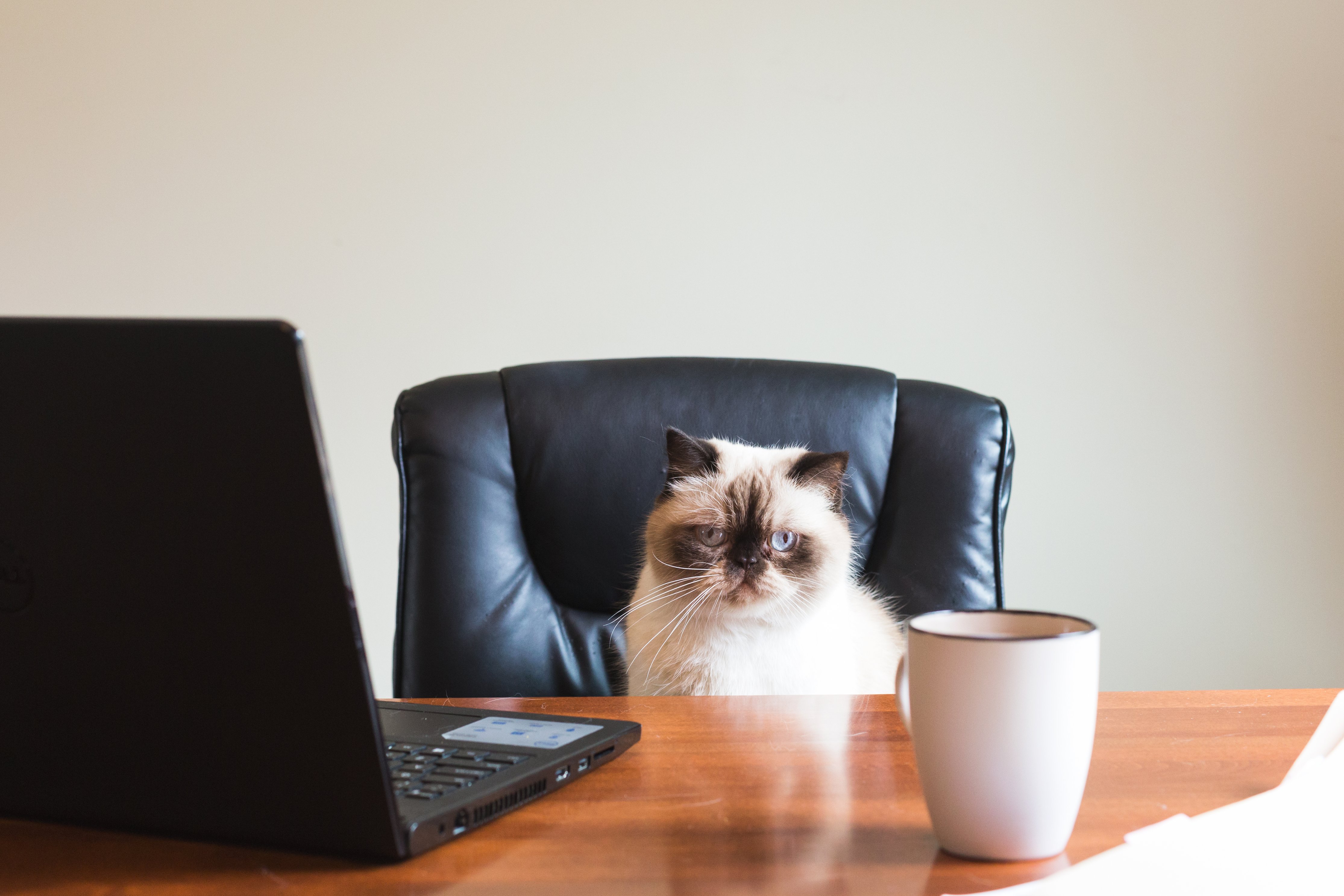
Household Items That Are Harmful to Pets
If there’s one thing that’s true about animal lovers, it’s that we’ll move heaven and earth for our fuzzy friends. (Sorry for excluding feathers and scales; that might come in a later post!) But the fact of the matter is, there are a lot of household items that could be harmful to pets.
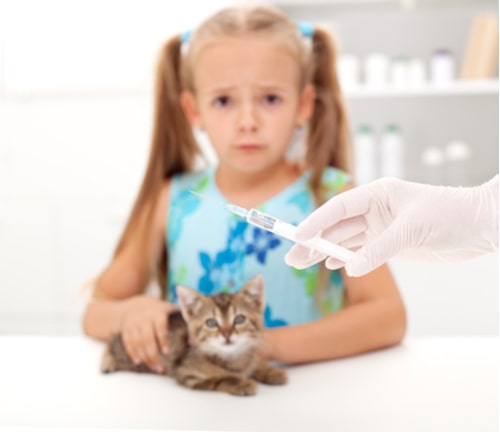
As pet parents, we do everything in our power to keep them safe and happy, and never, ever want anything bad to happen to them. Especially not under our watch. But if your furry BFF has ever gotten into something he or she shouldn’t have, you know how painful and stressful (not to mention expensive) it can be to make an emergency vet visit.
Top Household Items Harmful to Pets
There are lots of health hazards lurking in our homes – on our counters, in our cabinets, and even in our vases. Want to know more about how to keep your pets safe from household hazards? Here are the top 7 things to think twice about before you leave them out for your pets to find.
Keep an Eye on What’s Cookin’
Let’s face it – as much as we want to spoil our pets, there are some foods that just aren’t meant for pets. Chocolate is one strong example of a food whose reputation for being bad for your dog generally precedes it. But there are a lot of things we eat every day that are toxic to pets in any quantity.
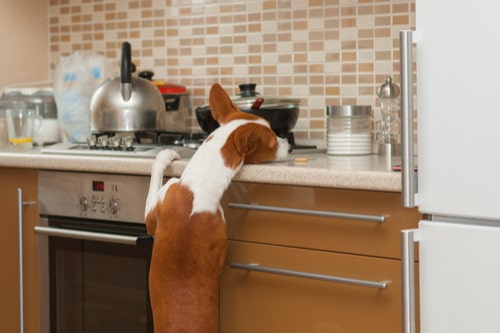
Onion, Garlic, Chives
While cats are more susceptible to the gastrointestinal inflammation caused by onion, garlic, and chives, dogs are still at risk if the amount consumed is large enough. A 2005 study found that symptoms can occur in a dog who has consumed only .5% of its own weight in onions, raw or cooked.
Bread Dough
Do you love making your own fresh bread at home? That uncooked dough is something you want to think twice about leaving out where your pets can reach. It might feel like common sense, but before it’s fully baked, bread dough needs to rise. And that’s exactly what it would do in your pet’s stomach if it’s eaten. As it swells inside, the dough can stretch the abdomen and cause severe pain for your pup (or kitty). When the yeast ferments the dough to make it rise, it also produces alcohol that can lead to alcohol poisoning. That’s a double-whammy that can land your pet(s) in the animal hospital if you don’t keep an eye out.
Fat Trimmings and Bones
Table scraps often contain fat trimmed off of meat and bones. Both fat and bones may be especially dangerous for cats. Fat, both cooked and uncooked, can cause intestinal upset, with vomiting and diarrhea. And a dog or cat can choke on a bone. Bones can also splinter and cause an obstruction or cut the inside of your cat’s digestive system. You might think you’re giving your furry friend a nice treat, but it could cause some unforeseen issues for both you and your pet.
Watch Your Snack Table
If you love entertaining, chances are your coffee table is a snack table more often than not. But watch out for what’s on it! A tasty snack for you could be harmful to your pets.
There are lots of snacks and finger foods that could be fatal for feline and Fido alike. Here are the top things to keep out of reach next time you get together with your friends.
Grapes, Raisins, and Currants
According to the American Animal Hospital Association, these sweet treats for humans should be kept away from our faithful furry friends. Researchers are still scratching their heads over what makes grapes (and raisins, for that matter) so bad for dogs and cats. But the American Kennel Club has provided some anecdotal accounts. Pet parents report symptoms like extreme thirst, lethargy, tremors, vomiting, and even kidney failure. Ingesting even a small amount of grapes, raisins, or currants could be fatally toxic.
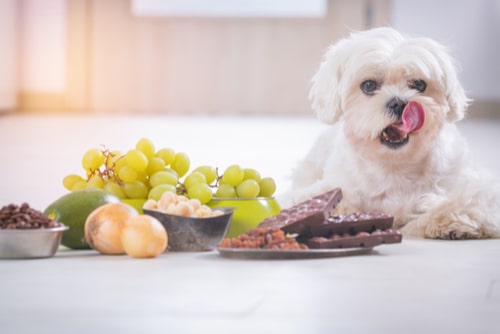
Macadamia Nuts
The ASPCA warns that even a small amount can prove harmful. It’s suggested that the toxicity of this nut may be related to its high-fat content. Macadamia nuts can cause symptoms like hypothermia, vomiting, tremors, and acute weakness in your pet’s hind legs. It can also present with symptoms like depression, vomiting, and tremors in dogs and cats that could present between 1-2 days of ingestion.
Anything Sugar-Free
We all want to stick to our New Year’s resolutions, so sugar-free snacks might seem like the answer, but always keep them out of reach of paws and snouts! The American Society for the Prevention of Cruelty to Animals reports that even small amounts ingested is harmful to animals in general. Hypoglycemia, or low blood sugar, as well as more serious symptoms like a seizure, liver failure, and even death, may occur in cats and dogs alike.
Make Sure Your Plants Are Pet-Friendly
A bouquet can be a beautiful way to show you care, and a lovely centerpiece to draw the eye. But it can also be a potentially dangerous thing to have around if you have a dog or cat. You may think it would never happen to you, but it’s always better to be safe than sorry when it comes to the welfare of your pet. The Pet Poison Helpline does a great job of breaking down which plants are the most dangerous to keep around the house. If you’re ever in doubt, a quick Google search could help. And simply taking a look at a plant identification app like Plant Snap could spare your pet a lot of
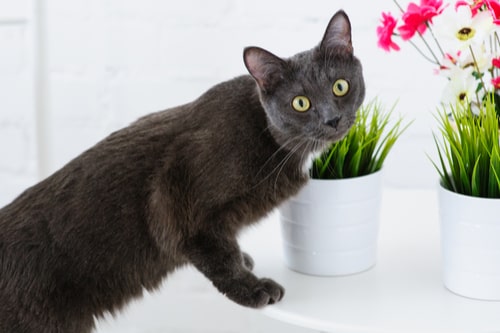
Pick-Me-Ups That Can Hurt Your Pets
Some of your favorite pick-me-ups – coffee, chocolate, and caffeine in general – are all harmful for both dogs and cats to ingest. This is largely due to the chemical compounds methylxanthine and theobromine. Here’s the nitty-gritty on things to keep far from pups and kitties:
Chocolate
While this chemical is found in higher levels in dark chocolate than white, all types should be avoided That means you, too, baking chocolates and semisweet chocolate chips! According to the American Society for the Prevention of Cruelty to Animals, methylxanthine and theobromine ingestion can cause extreme thirst and urination, vomiting and diarrhea, panting, tremors, seizures, hyperactivity, and irregular heart rhythms, which can prove fatal.Caffeine
We love caffeine. It’s how most of us begin our days. But pets are far more sensitive to its effects than we are as humans. A few laps of a soft drink or coffee may not be enough to cause a reaction, but getting into coffee grounds, tea bags, or even diet pills could be dangerous if not fatal for your faithful friend. According to the Pet Poison Helpline, you may be able to notice the effects within as early as 1-2 hours of ingestion. Your pet could experience hyperactivity, restlessness, as well as seizures and collapse, among other symptoms.
Keep Tabs on Your Drinks
This one pairs well with the previous point. Just like you should keep an eye on your caffeinated pick-me-ups, you should keep a close watch on depressants like alcohol. Wine, beer, tequila, sake: if it’s alcohol, it should not be left out for your pet to find.
That’s because alcohol has the same effect on your pet’s brain and liver as it does on yours. The only difference is it takes far less to do irreversible damage. And the higher the proof, the higher the risk. The ASPCA notes that alcohol poisoning can result in vomiting, diarrhea, loss of coordination, difficulty breathing, and even death, in serious cases. You might think it’s funny for your pet to join you in a drink, but it’s no laughing matter.
Research suggests that this also applies to brewer’s yeast or baker’s yeast. So, if you fancy yourself a brewer, it would be wise to keep these ingredients safely stored. And keep a close eye on those nightcaps. Your pet will thank you for it!
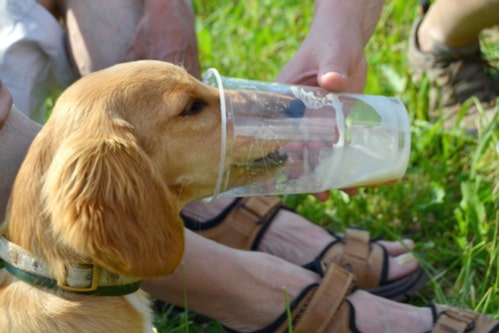
Keep Medication Out of Reach
When we see our pet in pain, it’s natural for us to want to relieve it. But some medications that are helpful to humans can be very harmful to pets. They metabolize these chemicals differently than we do. While something could help us feel better, it can be harmful your pet if you’re not careful.
If your pet has to get into every bag and every closed container they encounter, and they discover an open medicine cabinet or prescription bottle, this could be a very lethal combination. Here are the main offenders you should watch out for: acetaminophen, aspirin, ibuprofen, and naproxen.
Most people don’t think twice about popping a pill to squash headaches or back pain. But they definitely should think twice before giving one to their pet to alleviate their symptoms. Aspirin, ibuprofen, acetaminophen (found in Tylenol), and naproxen (found in Aleve) can all be very dangerous for your pet to get into, accidentally or otherwise. Even a small amount of could suffer serious stomach ulcers, kidney failure, or seizures. Always check your medications, never leave bottles or tubes of topical medicine out for your pet to find. And always consult a vet before giving any medication to your pet that wasn’t prescribed.Store Your Household Cleaners and Other Chemicals Safely
This one might sound a little obvious, but bear with me, it’s worth mentioning: be sure to store your detergents, insecticides, and other household chemicals safely away from your furry friends. Tina Wisner, DVM and medical director for the ASPCA Animal Poison Control Center, had this to say: “We just don’t realize how determined our pets are to eat the things they shouldn’t.” And it’s so true.
You would keep these dangerous chemicals away from your child – it’s an important aspect of baby-proofing your home that should never be neglected – so, what’s the difference between keeping them away from a human baby and your fur baby? Always take necessary precautions when it comes to storing everything from anti-freeze to motor oil.
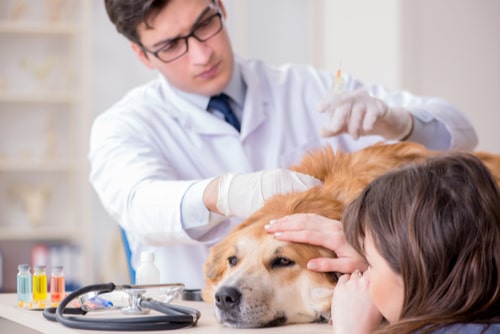
When It Comes to Household Items that Could Be Harmful to Pets…
There are lots of things that are toxic to both humans and their best friends, but there are plenty of things we eat every day that could be really harmful to your pet, especially if you don’t take action when they start exhibiting symptoms. Be watchful of what they ingest and what they could get into. Keep an eye out for possible symptoms. And if your pet does eat something it shouldn’t have, contact your veterinarian right away. You can also call the ASPCA Animal Poison Control Center at (888) 426-4435 for guidance.
Our pets love us and need us. They watch our backs, so we should do everything we can to watch theirs. We may think our homes are the safest place for our fuzzy family. But they may be exposed to more danger than we realize. Always make sure your home is the safe place for your pet, and happy pet parenting, from our furry family to yours!


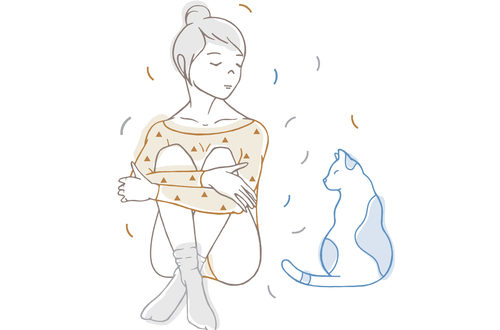
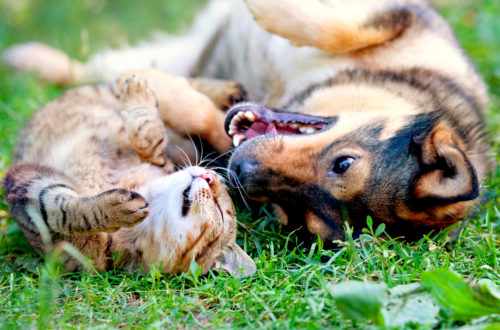

One Comment
Ashley Turner
Hey,
Not sure if you’re the right person for this…
I’m Ashley Turner from PuppyWire, a site that gives tips and advice to dog parents.
I’m reaching out to you because I saw you link out to petpoisonhelpline.com in your article https://theoffbeatbudget.com/household-items-harmful-to-pets/.
I put together a poisonous plant resource that covers 131 of the most common poisonous plants for dogs, which I think would be a great resource for your readers.
Would you be open to adding a link to it in your article?
You can check it out here: https://www.puppywire.com/poisonous-plants-for-dogs/
If interested I could also share your article with our Pinterest audience too!
What do you think?
Thanks,
Ashley